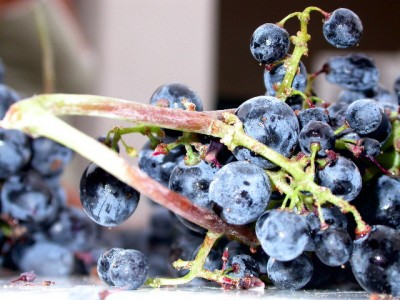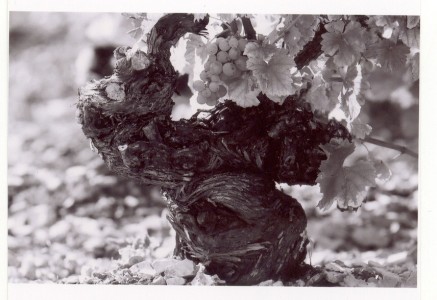–by Doug Wregg.
Q: Would you care to give me a pithy definition of Real Wine?
Real Wine is about men and women who farm sustainably, organically and even biodynamically and work with few or no interventions in the winery. Real wines taste of themselves and where they come from; they are not manipulated with chemicals nor subject to other winemaker’s tricks and tropes. They are more natural, more alive, more tasty (dare we say), and in the age of conformity and mediocrity, they are probably “unreal”.
Q: You use words like real and natural quite blithely. Is there an actual definition, a charter or simply a set of guidelines?
A: I think it is legitimate to use these terms as a peg on which to hang a set of guiding principles. A lot of critics of natural wine have become obsessed with semantics and will tell you that there is no such thing as natural wine because no wine is made “by nature”. Very true, grasshopper, but profoundly facile. Natural winemakers have to be incredibly proactive; their wines express the terroir and the vintage but also their own personalities. There is a million miles and many interventions that separate what we call natural wines and the highly manipulated, chemically-dominated products made for mass consumption.
There is a charter but it does not seek to create a club or a movement or a reason for judging or excluding or involving decision-makers and bureaucrats. It invites like-minded artisan growers and winemakers to come together and display their wines, it creates a rough and ready definition of “towards natural” that is inclusive. We believe that something which is measured and highly prescriptive is against the spirit of natural wine and merely provides the kind of bureaucratic restrictions that, for example, induced so many natural growers to leave the appellation system in the first place.
It is important not to be obsessed with the minutiae of language. Real, natural, raw, naked are interchangeable and equally applicable terms. Although we can’t define them precisely and wouldn’t wish to anyway, people know what they mean.

Q: There is a lot of criticism of natural wine in the press at the moment. Why do you think that is?
A: On balance I would say that the coverage is unbalanced and editorially driven. Every columnist also has their tuppence worth of opinion. There is a vogue for antagonistic and snide journalism that does not reflect well on the industry and a sense amongst a lot of people that the news agenda is unhealthily driven by advertisers, brands and special interest groups.
Natural wine annoys some people who believe that it is a movement (it isn’t) and that its adherents have arrogated to themselves the moral high ground. That would be irritating if it were true; instead it is the overwrought columns and blogs of established critics and bloggers have lowered the tone of the debate by means of perpetual misdirection and mild to outright offensiveness. Certain growers, who seem to care more about pr than their vines, also delight in raising their profile by having a pop at natural wine. Difficult to say why this subject raises collective hackles but it boils down to a mix of self-interest, money, wilful misunderstanding and flagrant irrationalism.
My feeling is that the concept – rather than the actuality – of natural wine, undermines the classic conservative wine hierarchies. The idea that you might make great wines that people enjoy drinking without recourse to chemical intervention or oenological manipulation, that such interventions or manipulations might only be necessary in the first place because of the poor raw material provided by the grapes from chemically sprayed vineyards, is not what the establishment wants to hear.
I understand that many growers and customers seek stability in their wines. I have no problem with that; but believe those other growers who choose to work without a safety net should not only not be criticised for their practical and aesthetic choices, but applauded for pushing the boundaries.
Quite simply, we want people to think about what they are drinking and to drink better wine. How is that controversial? Well, I refer my honourable friend to the answers I gave before.

Q: And the growers…?
A: The growers have to make a living! It is crass to accuse them of being swivel-eyed ideologues or hippies from another planet. Ironically, there is a huge, very thirsty demand for these wines and they sell out quickly.
The growers do their job. Each year brings uncertainty; it is a natural process… this giving birth to a wine, but a commercial reality that the wines have to be sold. Hundreds of thousands of people drink natural wine every day with absolute pleasure; they might be surprised to learn that they couldn’t distinguish flawed wines and that their unqualified love of the product meant that they had extreme tastes.
Q: Finally, why is natural wine important?
A: There are so many answers to that, most emotional and some intellectual. Experiencing these wines and talking to the growers has shown me that many orthodoxies are plain bogus. It is true that education is what you didn’t learn at school. The wine establishment believes both in the end of history and that all is for the best in the best possible world. It is important to flush out lax preconceptions and prejudices and show that progress is not more technology for the sake of technology or chemicals or yeasts that can profile any flavour that any hypothetical consumer might want to taste. Natural wine is the true inheritor of slow food mantle; supporting real tasty products made without additives. Although I believe in ethical farming and prefer my wines without additives I also believe we should respect personal taste. Returning to the emotional side of drinking great natural wine, quite simply, these wines move me. Pure, honest, drinkable and digestible, naked wines, living wines, different wines daring to be different, wines that make you feel connected to the terroir and the grower.


It’s a pity that you need to keep banging on and defending ‘natural’ wine but don’t doubt it, you do. Perhaps some of the misunderstanding from critics is the idea that all natural wines are cloudy, smelly and bonkers. Of course this is not the case so maybe the focus needs to shift to a criticism of ‘unnatural’ wine.
I would always write appreciatively about wines that I enjoy drinking. I think the principles of sustainable farming and less-is-more intervention are worth defending. I can’t understand the reasoning of certain critics who feel the need to generalise about every single wine that is made according to these principles. There are hundreds of individual growers and they all work in their own way and make different-tasting wines. Natural is a fair enough term to describe this way of working, but there are others which may be less contentious. As for “unnatural wines” I wouldn’t say that there is a line in the sand which divides interventionist winemaking and non-interventionist winemaking but rather a spectrum of different approaches. The more that is done to the wine, the less natural it becomes, by definition, for better or for worse (for worse, in my opinion.) –Doug